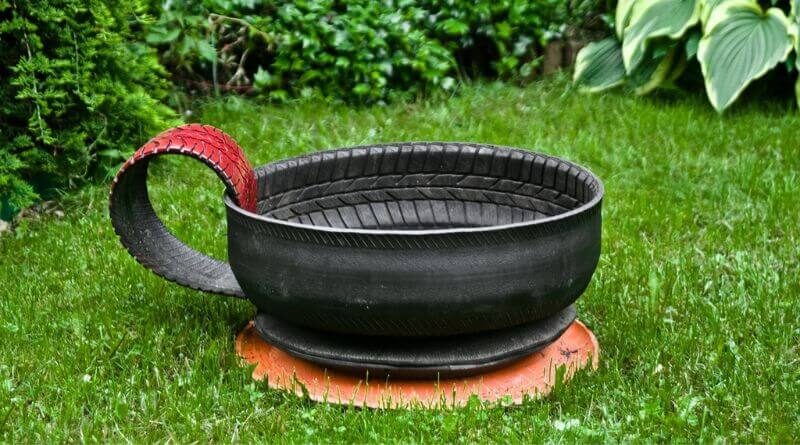What is the zero waste movement?
The imminent climate change as well as a consequent depletion of our planet’s natural resources is one of the problems that society is currently facing. For this reason, movements such as recycling, circular economy or sustainable development are essential to reduce the negative impact and results of global warming.
In today’s article we are going to talk about one of these kinds of initiatives, the zero waste movement: we will explain what it consists of, what benefits it brings and how we can implement it in our daily lives.
What does zero waste mean?
In English, “zero waste” refers to the principles that seek to reuse products, so that they do not return to nature in the form of waste or garbage.
In this context, the life cycle of objects and products is extended thanks to recycling, and forces us to include as many biodegradable materials as possible in their composition so that they do not harm our planet. This model is very different to the one we have experienced in recent decades, where most of the products we consumed were manufactured or wrapped in plastics and other polluting substances.
According to the Zero Waste International Alliance (ZWIA), its goal is to achieve “the conservation of all resources through the responsible production, consumption, reuse and recovery of all products, packaging and materials, without burning them and without discharging them into the soil, water or air so that they do not threaten the environment or human health”.
For the aforementioned organization, achieving this goal involves producers and manufacturers deciding whether or not to follow these principles, but it is also in the hands of each individual consumer according to the commitments favorable to this cause. The whole of society needs to change habits and priorities, and institutions and governments play a key role in applying favorable regulations to this zero waste movement, as well as tax incentives and support for less polluting activities and productions.
The basic pillar on which the zero waste movement is based, is the application of the famous “R’s” in our daily lives. We describe them in order of priority of use:
- Refuse: includes consumption awareness and saying no to buying all those things we don’t really need.
- Reduce: reduce consumption by reviewing our “needs”.
- Reuse: replace all single-use products with reusable alternatives.
- Repair: look for a solution if something breaks down to bring it back to life.
- Recycle: if we have not been able to reuse a product, then the best option is to recycle it.
- Rot (compost): take advantage of organic matter to grow at home.
- Rethink: value what we consume, how and why.
The origin of zero waste movement
It is considered that the driving force of the zero waste movement was Bea Johnson, from California. In 1985, she set herself the goal that all the waste generated by her family would fit into a 200-milliliter can. We can say that the zero waste movement was created thanks to Bea’s determination to leave a better planet for her children.
Mrs Johnson set a series of basic rules, known as the 5 “R’s”: Refuse, reduce, reuse, recycle and rot – compost, which have now been extended to 7, as we have seen above. All of them were aimed at reducing our consumption and the waste we generate as much as possible.
What measures are being implemented?
The problem that continues to be encountered is that, despite these initiatives, waste is growing at a worrying rate; according to the World Bank, 2.01 billion tons of solid waste were generated in cities alone in 2016 (0.74 kilos per person per day). So if we do not successfully promote a global zero waste policy, that figure would reach 3.4 billion tons by 2050.
For this reason, more and more measures are being implemented to promote this movement, such as the collection of plastic bags in stores and supermarkets to reduce their use, since they are among the most polluting objects for the oceans, along with cigarette butts, food wrappers or plastic bottles, according to the Ocean Conservancy. The reduction of plastic bags is also a goal of the European Parliament’s directive that envisages industrial incentives to develop less polluting alternatives and the collection of 90% of plastic beverage containers (single-use) by 2025.
But what do we gain with starting a zero waste routine?
Leading a “zero waste” conscious life brings economic, environmental and also personal benefits. The latter are the ones we are detailing below:
- We will have a healthier home; and that is using solid or bulk hygiene and cleaning products which are usually more natural and free of toxins.
- Seasonal foods and local production offers us fresh products, not precooked and free of preservatives and harmful additives.
- We will spend less with conservation tricks and easy, tasty and healthy recipes, which will help us to waste less food leftovers.
- We save costs by avoiding unnecessary purchases; by reviewing our needs we will avoid buying products that we do not really use.
- We will also reduce expenses by reusing products and materials that we already have in our homes.
- We improve our quality of life, facilitating a greater order, both mentally and in our home, and thus spend less time and worries cleaning.
And after reading our article, are you going to implement the zero waste movement?
Follow us on our social networks and don’t miss our publications and news about the environment and renewable energies.

